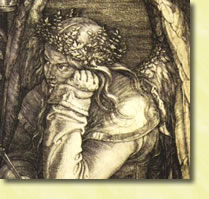 I‘ve been noticing a lot of conversation in the last few days about the Vatican’s apparent “shift” regarding homosexuality, both in the secular press and among Christians. There is both celebrating (by secularists) and gnashing of teeth (by traditional Christians). Before they conclude either that the Vatican has finally “seen the light,” or that “the sky is falling,” people should read the document in its entirety: Relatio post disceptationem.
I‘ve been noticing a lot of conversation in the last few days about the Vatican’s apparent “shift” regarding homosexuality, both in the secular press and among Christians. There is both celebrating (by secularists) and gnashing of teeth (by traditional Christians). Before they conclude either that the Vatican has finally “seen the light,” or that “the sky is falling,” people should read the document in its entirety: Relatio post disceptationem.
The document clearly affirms the historic Christian position on marriage. The key paragraph is probably the following:
Jesus Himself, referring to the primordial plan for the human couple, reaffirms the indissoluble union between man and woman, while understanding that “Moses permitted you to divorce your wives because your hearts were hard. But it was not this way from the beginning” (Mt 19,8). In this way, He shows how divine condescension always accompanies the path of humanity, directing it towards its new beginning, not without passing through the cross.
What is being addressed seems clearly to be an issue of pastoral response to what are described as “wounded families” and “irregular situations.” A number of such “irregular situations” are referred to: African polygamy, children born outside the context of marriage, civil marriages (a problem for Roman Catholics, since non-church marriages are not recognized), religiously “mixed” marriages, non-remarried divorced, remarried divorced, cohabiting couples, homosexuals.
The document says very little about homosexuality, but clearly distinguishes between homosexual orientation and homosexual practice. The key paragraph is:
Homosexuals have gifts and qualities to offer to the Christian community: are we capable of welcoming these people, guaranteeing to them a fraternal space in our communities? Often they wish to encounter a Church that offers them a welcoming home. Are our communities capable of providing that, accepting and valuing their sexual orientation, without compromising Catholic doctrine on the family and matrimony? [my emphasis]
The document affirms the following:
1) There is no compromise on the church’s historic stance: “In this light, the value and consistency of natural marriage must first be emphasized.”
2) The pastoral goal in cases in which “irregular situations” exist is to regularize the situation wherever possible: “All these situations have to be dealt with in a constructive manner, seeking to transform them into opportunities to walk towards the fullness of marriage and the family in the light of the Gospel.”
3) The document asks for a pastoral sensitivity in response to those in such situations, an approach that (to use Reformation language) is driven by the promise of grace, not the condemnation of law:
Each damaged family first of all should be listened to with respect and love, becoming companions on the journey as Christ did with the disciples of the road to Emmaus. In a particular way the words of Pope Francis apply in these situations: “The Church will have to initiate everyone – priests, religious and laity – into this “art of accompaniment”, which teaches us to remove our sandals before the sacred ground of the other (cf. Es 3,5). The pace of this accompaniment must be steady and reassuring, reflecting our closeness and our compassionate gaze which also heals, liberates and encourages growth in the Christian life» (Evangelii Gaudium, 169).
4) Even in the presence of “irregular situations,” a pastoral approach should recognize that there often are positive aspects included in the relationships: for example, cohabiting couples exhibit many of the positive characteristics of marriage, and many do eventually marry; gay couples do care about and sacrifice for one another, and, if there are children involved, the church has a pastoral responsibility to them:
Without denying the moral problems connected to homosexual unions it has to be noted that there are cases in which mutual aid to the point of sacrifice constitutes a precious support in the life of the partners. Furthermore, the Church pays special attention to the children who live with couples of the same sex, emphasizing that the needs and rights of the little ones must always be given priority.
As an aside, this is simply recognizing that even in a sinful situation, there are always elements of grace present. Without approving of the compromised situation, the church is asked to recognize that these elements of grace can be steps toward moving in the right direction:
All these situations have to be dealt with in a constructive manner, seeking to transform them into opportunities to walk towards the fullness of marriage and the family in the light of the Gospel. They need to be welcomed and accompanied with patience and delicacy. With a view to this, the attractive testimony of authentic Christian families is important, as subjects for the evangelization of the family.
5) Aside from pastoral sensitivity, the primary concern of the document seems to be evangelism, that is, how might the church most effectively communicate the gospel to those in broken family situations? “The announcement of the Gospel of the family is an urgent issue for the new evangelization. The Church has to carry this out with the tenderness of a mother and the clarity of a teacher (cf. Eph 4,15), in fidelity to the merciful kenosis of Christ. The truth is incarnated in human fragility not to condemn it, but to cure it.”
6) There is a christocentric focus:
In order to “walk among contemporary challenges, the decisive condition is to maintain a fixed gaze on Jesus Christ, to pause in contemplation and in adoration of His Face. … Indeed, every time we return to the source of the Christian experience, new paths and undreamed of possibilities open up” (Pope Francis, Address of 4 October 2014). Jesus looked upon the women and the men he met with love and tenderness, accompanying their steps with patience and mercy, in proclaiming the demands of the Kingdom of God.
As I read it, the point is that, pastorally, the church needs to act more like Jesus, and less like Simon the Pharisee (Luke 7:36-50).
If there is a shift, it is not in the church’s historic teaching about sexuality, but rather in the recognition that the church has done a poor job in communicating the gospel to people in such “irregular situations.” If the only message that cohabiting couples, divorced couples, and gay couples hear is that they are condemned because they are sinners, they will not be able to hear the good news of forgiveness and healing, and they will be reluctant to be reconciled either to Christ or to the church.
Last week, TSM (where I teach) had a conference on “Christian Faith and Same-Sex Attraction: Finding Paths to Ministry.” My own take is that the Vatican is saying something very similar to the issues addressed at that conference.
Without in any way compromising the church’s historic teaching about sexuality, I think it important that those of us who are orthodox Christians recognize that we have often done a poor job of communicating to people of same-sex attraction that the gospel really is good news, even for them. Aside from a suggestion to read the Vatican document for yourself, I would also suggest that folks would profit from reading the book of my colleague, Wesley Hill, Washed and Waiting: Reflections on Christian Faithfulness and Homosexuality, (Zondervan, 2010).
As a final reflection, one of the key themes of the document is one that I think should be heeded by all orthodox Christians who have been fighting the battle of the cultural wars of the last few decades. A demand for conversion is not one that only needs to be addressed to those in anomalous sexual relationships. If the church is to be heard in its call for conversion, it needs to heed that call itself. It is not enough to just keep telling gay people that they are sinners:
For this reason, what is required is a missionary conversion: it is necessary not to stop at an announcement that is merely theoretical and has nothing to do with people’s real problems. It must not be forgotten that the crisis of faith has led to a crisis in matrimony and the family and, as a result, the transmission of faith from parents to children has often been interrupted. Confronted by a strong faith, the imposition of certain cultural perspectives that weaken the family is of no importance.
Conversion has, above all, to be that of language so that this might prove to be effectively meaningful. The announcement is about letting it be experienced that the Gospel of the family is the response to the deepest expectations of a person: to his or her dignity and its full realization in reciprocity and communion. This is not merely about presenting a set of regulations but about putting forward values, responding to the need of those who find themselves today even in the most secularized countries.


